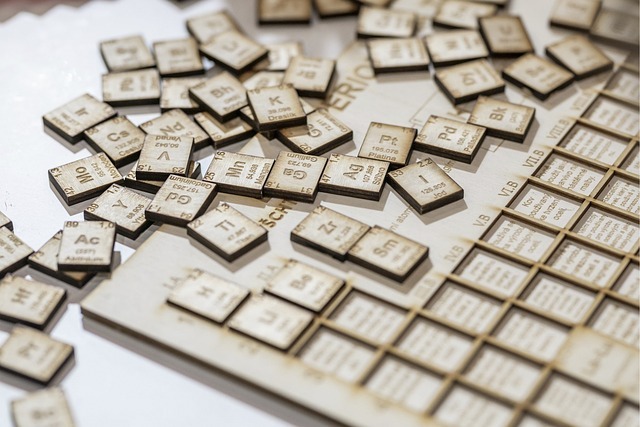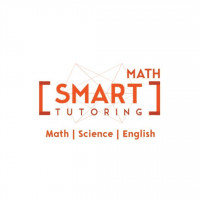Key Concepts in AP Chemistry to Focus on with the Help of a Tutor

Strong 8k brings an ultra-HD IPTV experience to your living room and your pocket.
Advanced Placement (AP) High school students can take some very hard classes, like chemistry. It makes students think critically, use complicated theories and do accurate math, all while covering a lot of material. For a lot of people, it can be too much to keep up with the fast pace and in-depth material. That's where AP chemistry tutoring comes in. Students can learn important things, get better at taking tests, and do better in class and on the AP exam with one-on-one help.
Why Students Struggle and Why Tutoring Helps
AP Chemistry is like a first-year college general chemistry class, but regular high school chemistry is not. Students have to learn not only the rules of chemistry but also how to use them in new situations. There are a lot of formulas, abstract ideas, and lab-based applications in the subject, so it's easy to fall behind without regular help.
Even students who are very motivated may not be able to learn everything they need to know in class. Teachers have to move quickly to cover all the material that students need to know before the AP exam in May. This means that there isn't much time for in-depth explanation or one-on-one help. This is where AP chemistry tutoring really helps. Tutors give students one-on-one instruction, break down hard ideas into smaller, easier-to-understand parts, and change lessons to fit how and at what speed a student learns.
Key Concepts That Tutoring Can Reinforce
A qualified tutor can help students learn the main ideas of AP Chemistry while focusing on understanding, using what they learn, and getting ready for the test. Tutoring is most useful in these important areas:
1. Atomic Structure and Periodic Trends
It is important to know about atomic structure for all parts of chemistry. Students need to know how electrons are arranged, how ionization energy and electron affinity work, and how these things affect how chemicals behave. Tutors can help students fully understand periodic trends and quantum mechanical principles by using visual models and interactive explanations. These are the ideas that will be important for later topics.
2. Chemical Bonding and Molecular Geometry
This unit covers a lot of abstract ideas that many students don't understand, such as ionic and covalent bonds, resonance structures, and molecular polarity. A tutor can make learning easier by stressing how important Lewis dot diagrams, VSEPR theory, and hybridization are. To understand how molecules interact, how soluble they are, and how reactions work, you need to master these ideas.
3. Stoichiometry and Chemical Reactions
It's only the beginning to balance equations. Students should be able to figure out limiting reagents, theoretical yield, and percent yield correctly in different situations. Students who get AP chemistry tutoring get regular practice with problem-solving techniques, dimensional analysis, and error-checking strategies. This helps them make fewer mistakes when they are under a lot of stress on tests.
4. Thermodynamics and Kinetics
AP Chemistry is all about thermodynamic ideas like enthalpy, entropy, and Gibbs free energy. Students can learn about the connections between heat, energy, and how reactions happen on their own with the help of tutors. These are ideas that are often tested in both multiple-choice and free-response questions. In kinetics, tutors explain how rate laws are made and how things like temperature and concentration change how fast reactions happen.
5. Equilibrium and Acids/Bases
Equilibrium calculations often intimidate students, especially when dealing with complex ICE tables or Le Châtelier’s Principle. A tutor helps students set up and solve equilibrium problems step by step, making sure they understand not only how to do it but also why. The same is true for acid-base chemistry: tutors help students understand pH, pKa, titration curves, and buffer systems by having them practice them over and over again and use them in real life.
6. Electrochemistry and Lab Techniques
It can be hard to picture electrochemical cells, redox reactions, and how electrons move. Tutors can use interactive tools, diagrams, and simulations to help students understand these ideas better. Many AP students also need help with lab-based questions, especially those about error analysis and experimental design, which are common on the test.
Benefits Beyond the Books
Tutoring in AP chemistry does more than just help you do better on tests. It makes students feel good about themselves, makes them want to learn more, and helps them work harder. A good tutor doesn't just help students remember facts; they also teach them how to think like chemists. This skill is very useful for people who want to study science or engineering in college.
Also, tutors can help with time management and pacing strategies for the AP exam, which is known for having a hard free-response section. Students get more comfortable with the format and learn how to avoid common mistakes by simulating test conditions and going over old exam questions.
Start Building a Strong Chemistry Foundation
You can't just happen to do well in AP Chemistry; you need to work hard, stay focused, and get the right kind of help. If your student is having trouble keeping up or wants to get a perfect score on the AP exam, you might want to hire a tutor who knows the course inside and out.
At Smart Math Tutoring, experienced tutors offer expert AP chemistry tutoring that is tailored to each student's needs and helps them reach their academic goals. The right tutor can help you master this difficult subject, whether you need to review the basics or get ready for the AP test.
Note: IndiBlogHub features both user-submitted and editorial content. We do not verify third-party contributions. Read our Disclaimer and Privacy Policyfor details.


